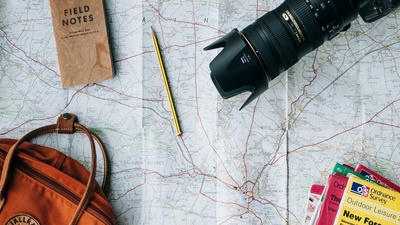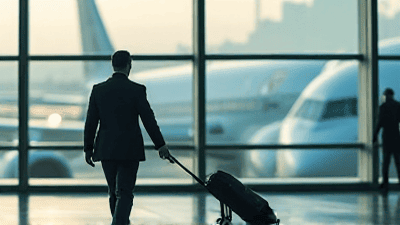
Traveling is one of life’s greatest joys, allowing individuals to explore new cultures, meet new people, and create unforgettable memories. However, as we move into 2025, ensuring a safe travel experience has become more essential than ever. Growing concerns about health, safety, and global events necessitate a proactive approach to travel planning.
Understand the Current Travel Landscape
1. Stay Informed About Travel Restrictions
Before embarking on your journey, it's crucial to stay up to date with the latest travel restrictions and requirements. Many countries have implemented varying guidelines in response to global health issues and geopolitical events. Research your destination to know about:
- Entry requirements such as visas and vaccinations
- Quarantine policies upon arrival or return
- Local health protocols, including social distancing and mask mandates
Resources:
- Government travel advisories
- Official websites of airlines and countries
- Reputable travel blogs and forums
2. Be Aware of Health Risks
Health considerations are paramount when planning travel in 2025. Understanding potential health risks associated with your destination can inform your decisions about whether to travel and what precautions to take. Consult resources such as:
- Centers for Disease Control and Prevention (CDC)
- World Health Organization (WHO)
- Local health departments and travel clinics
Additionally, consider scheduling a pre-travel health consultation with a healthcare provider to discuss any necessary vaccinations, medications, or preventive measures.
Preparing for Your Trip
3. Create a Detailed Itinerary
A well-planned itinerary can greatly enhance your travel experience while ensuring safety. Your itinerary should include:
- Travel dates and times
- Transportation arrangements (flights, car rentals, etc.)
- Accommodation details
- Activities and sightseeing plans, including any timed reservations or tickets
Having a detailed itinerary allows you to better manage your time and make necessary adjustments if unexpected situations arise.
4. Opt for Travel Insurance
Travel insurance acts as a safety net, providing financial protection in case of unforeseen events such as trip cancellations, medical emergencies, or lost luggage. When selecting a policy, consider the following:
- Coverage for medical expenses
- Trip cancellation and interruption coverage
- Emergency evacuation options
- Coverage for lost or stolen personal items
Make sure to read the terms and conditions carefully to understand what is and isn't covered.
5. Keep Digital and Physical Copies of Important Documents
When traveling, keeping track of important documents is vital. Create both digital and physical copies of:
- Passport and identification cards
- Travel insurance documents
- Flight itineraries and accommodation confirmations
- Emergency contacts and medical information
Store digital copies securely on your phone or cloud storage while keeping physical copies in a safe place, such as a travel wallet.

Staying Safe During Your Trip
6. Prioritize Health Protocols
As global health concerns continue, be mindful of health protocols at your destination. Follow these best practices:
- Wear Masks: Adhere to local guidelines regarding mask usage, particularly in crowded areas and indoor spaces.
- Practice Hand Hygiene: Wash your hands regularly with soap and water for at least 20 seconds, or use hand sanitizer with at least 60 percent alcohol when soap is unavailable.
- Avoid Crowds: Choose less crowded attractions and explore off-peak hours to maintain social distance.
7. Use Trusted Transportation Options
When navigating your destination, prioritize safe and reliable transportation options. Consider the following:
- Public Transportation: If using public transit, opt for services with good safety protocols in place. During peak times, try to avoid overcrowded vehicles.
- Rideshares and Taxis: Use reputable rideshare apps or established taxi services. Always verify the driver's identity and vehicle details before entering.
- Car Rentals: If renting a car, choose a confirmed provider and follow all rules of the road in your destination country.
8. Choose Accommodations Wisely
Your choice of accommodation can significantly impact your overall safety. When selecting where to stay, consider the following:
- Health and Safety Policies: Look for accommodations that implement enhanced cleaning protocols and health safety measures.
- Location: Choose accommodations in safe neighborhoods with easy access to public transport and attractions.
- Reviews and Ratings: Check reviews on platforms like TripAdvisor or Booking.com to gauge the experiences of previous guests.
9. Be Mindful of Personal Safety
Staying vigilant about your personal safety can prevent potential issues during your trip. Here are some tips:
- Stay Aware of Your Surroundings: Be observant of your environment and trust your instincts. If something feels off, it’s better to leave the area.
- Secure Your Belongings: Use anti-theft backpacks or bags, and keep your valuables close. When in public, avoid displaying expensive items that might attract unwanted attention.
- Stay Connected: Share your travel itinerary with someone you trust and keep in touch regularly throughout your trip.
Navigating Communication and Technology
10. Use Communication Apps
In our fast-paced, interconnected world, staying in touch while traveling is easier than ever. Make use of communication apps to keep in touch with friends, family, and fellow travelers. Some popular apps include:
- WhatsApp: Allows for messaging, voice, and video calls over Wi-Fi.
- Google Voice: Offers a virtual phone number that can route calls and texts to your existing device.
- Signal: Provides encrypted messaging for secure communication.
11. Keep Your Technology Secure
Protecting your devices and personal information is essential while traveling. Here are some strategies:
- Use Password Protection: Enable strong passwords and biometric locks on your devices.
- Avoid Public Wi-Fi for Sensitive Transactions: Use a Virtual Private Network (VPN) when connecting to public Wi-Fi to enhance security during online activities.
- Backup Data: Regularly back up crucial data, including travel itineraries and contacts, to avoid losing important information.
Emergency Preparedness
12. Prepare for Natural Disasters
Depending on your destination, research the potential for natural disasters, such as hurricanes, earthquakes, or wildfires. Consider appropriate safety measures, including:
- Know Emergency Procedures: Familiarize yourself with emergency plans for your destination, such as evacuation routes or local shelters.
- Emergency Kit: For longer trips, prepare a basic emergency kit with essential items such as water, snacks, basic first aid supplies, and a flashlight.
13. Have a Plan for Medical Emergencies
Unexpected medical situations can arise while traveling. Be prepared by taking the following steps:
- Know the Location of Nearby Medical Facilities: Familiarize yourself with local hospitals, clinics, or pharmacy locations in your destination.
- Carry a Basic First Aid Kit: Include common medications and supplies such as pain relievers, band-aids, and antiseptic wipes.
14. Keep Important Contacts Handy
In case of an emergency, having a list of essential contacts is crucial. Include:
- Local emergency services (police, fire, and medical)
- Your country’s embassy or consulate
- Personal emergency contacts
Store this list in your phone and also keep a physical copy in your travel wallet.
After Your Trip
15. Stay Informed Post-Travel
After returning from your trip, remain informed about any potential health alerts related to your destination. This may include monitoring any symptoms and seeking medical advice if needed.
16. Reflect and Plan for Future Trips
Take time to reflect on your travel experience, noting what worked well and areas for improvement. Consider keeping a travel journal to document your adventures and insights.
Final Thoughts
Traveling in 2025 presents unique challenges and opportunities. By adopting a proactive and informed approach to your travel plans, you can enjoy a worry-free trip while ensuring your safety and well-being. From staying aware of local health protocols to preparing a comprehensive emergency plan, these tips will empower you to travel confidently and responsibly.
So go ahead and make plans for your next adventure, embracing the joy of exploration and discovery while prioritizing safety every step of the way. The world is waiting for you, and with a little preparation, you can make the most of your travel experience in 2025.



